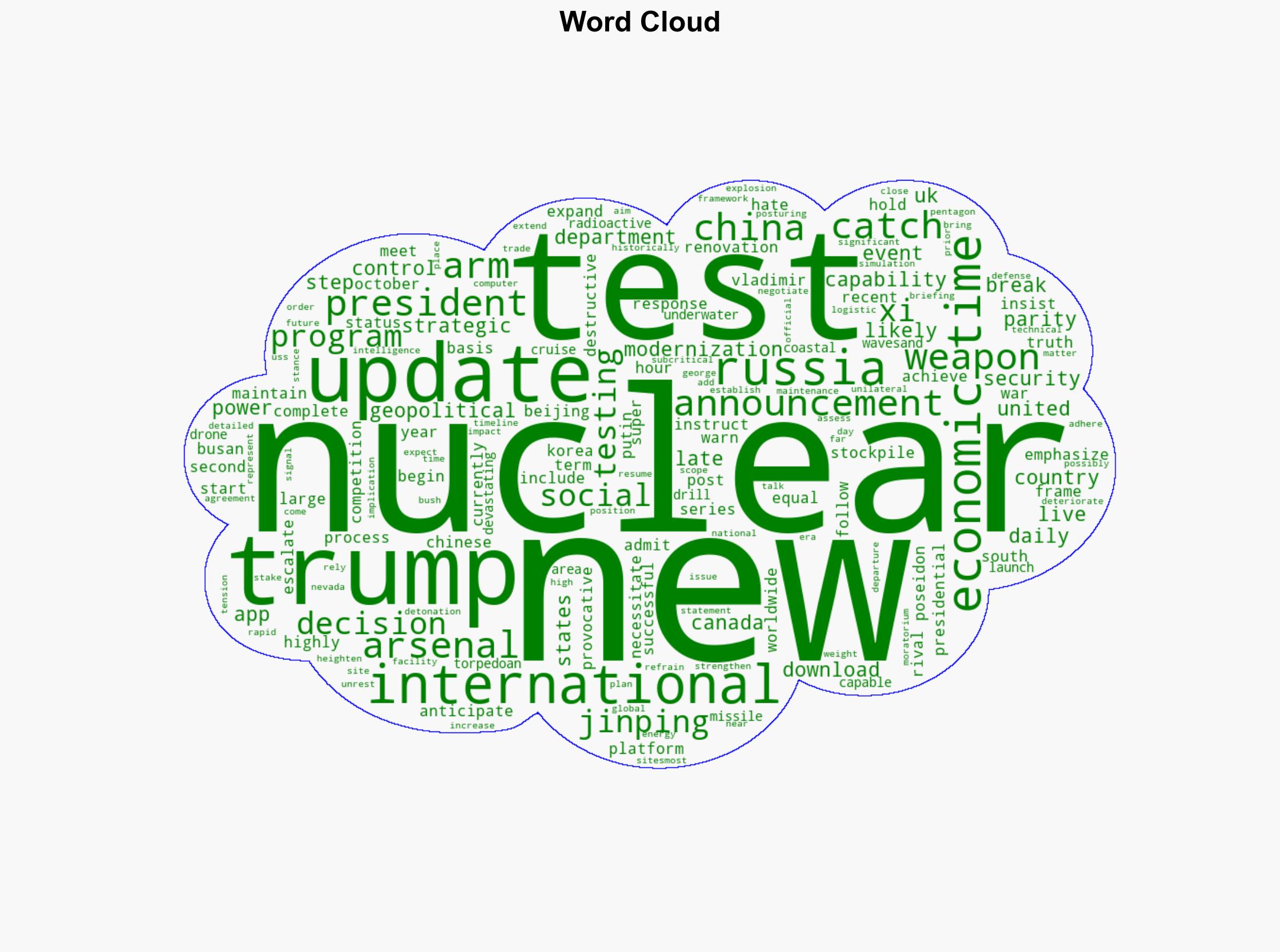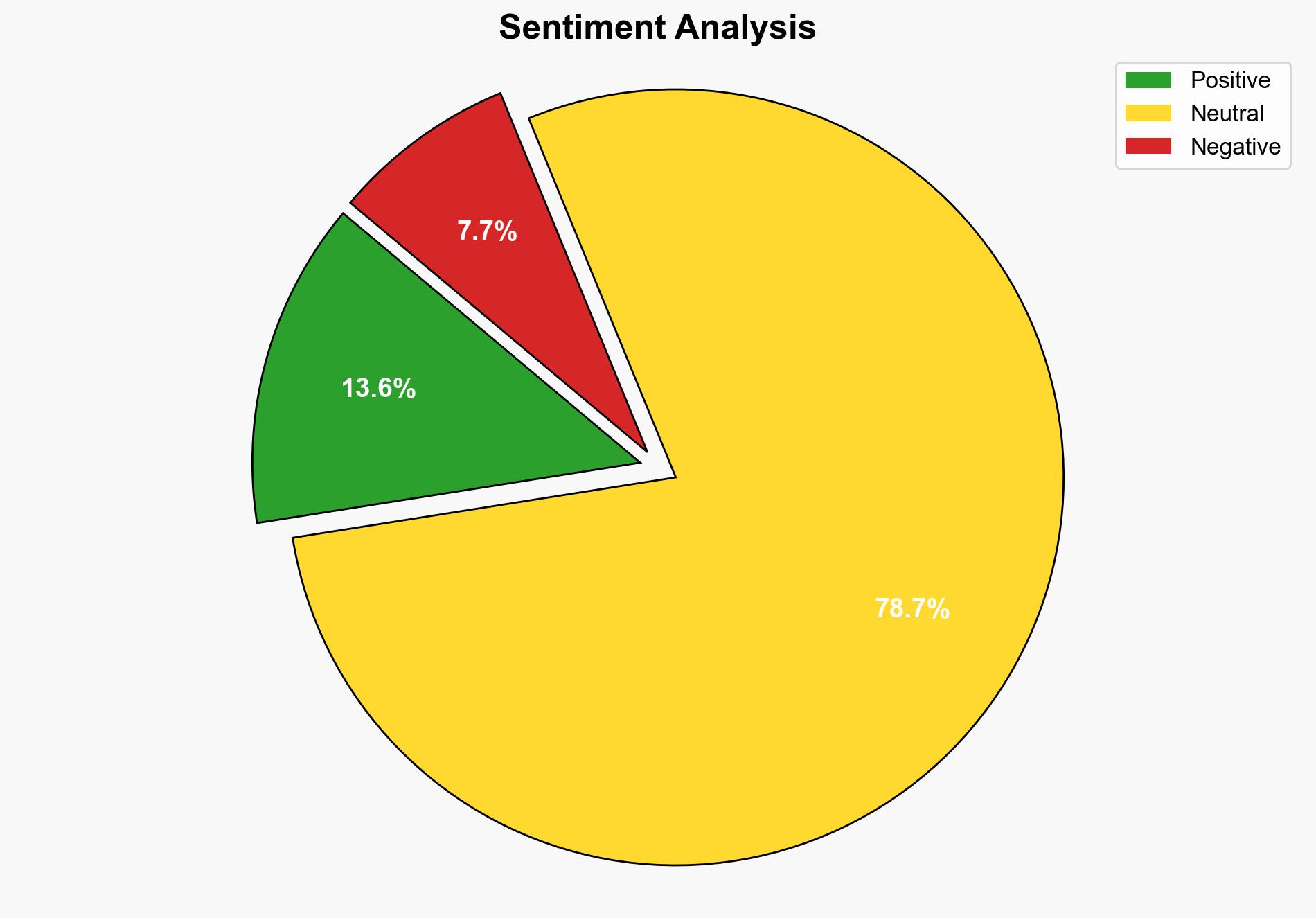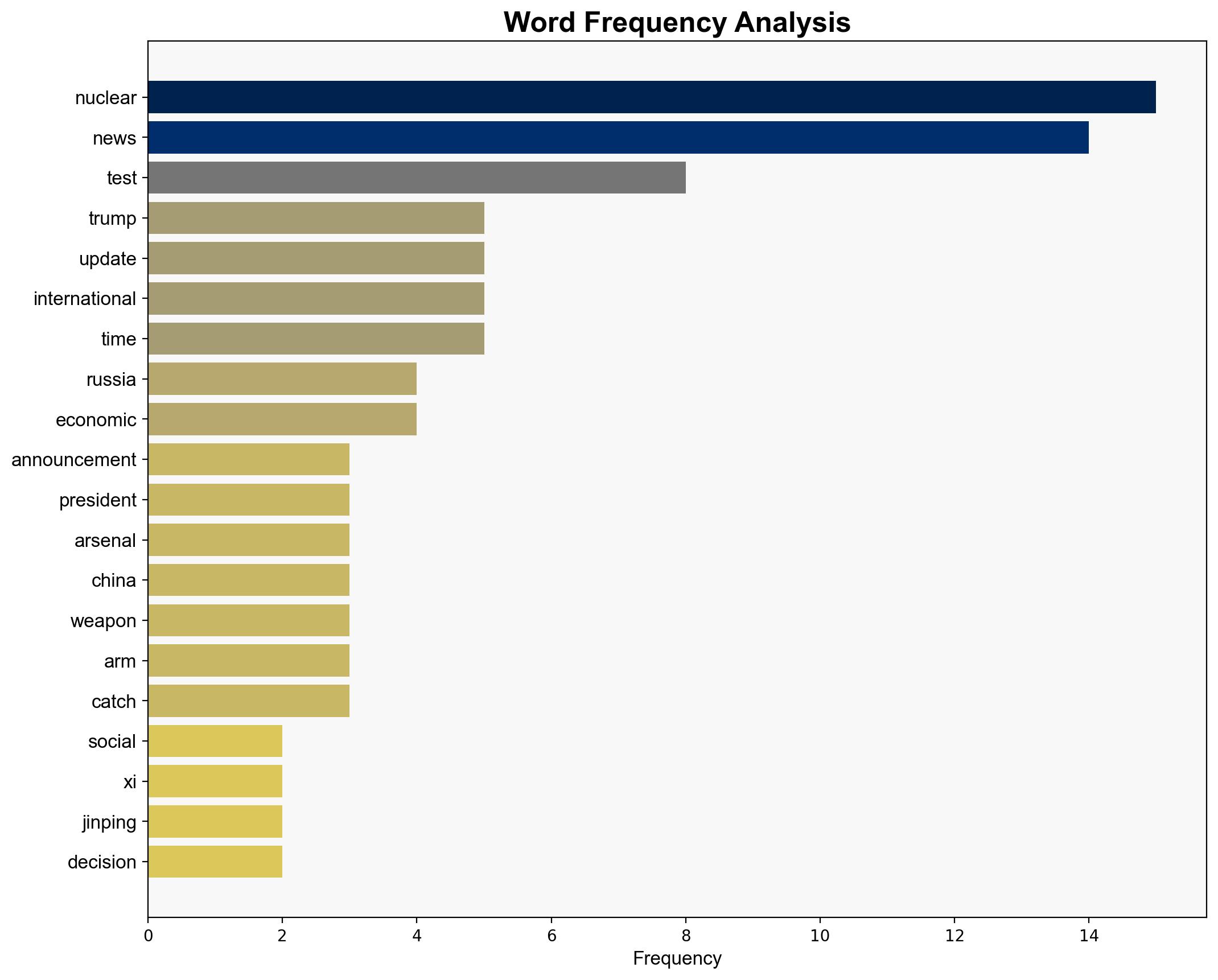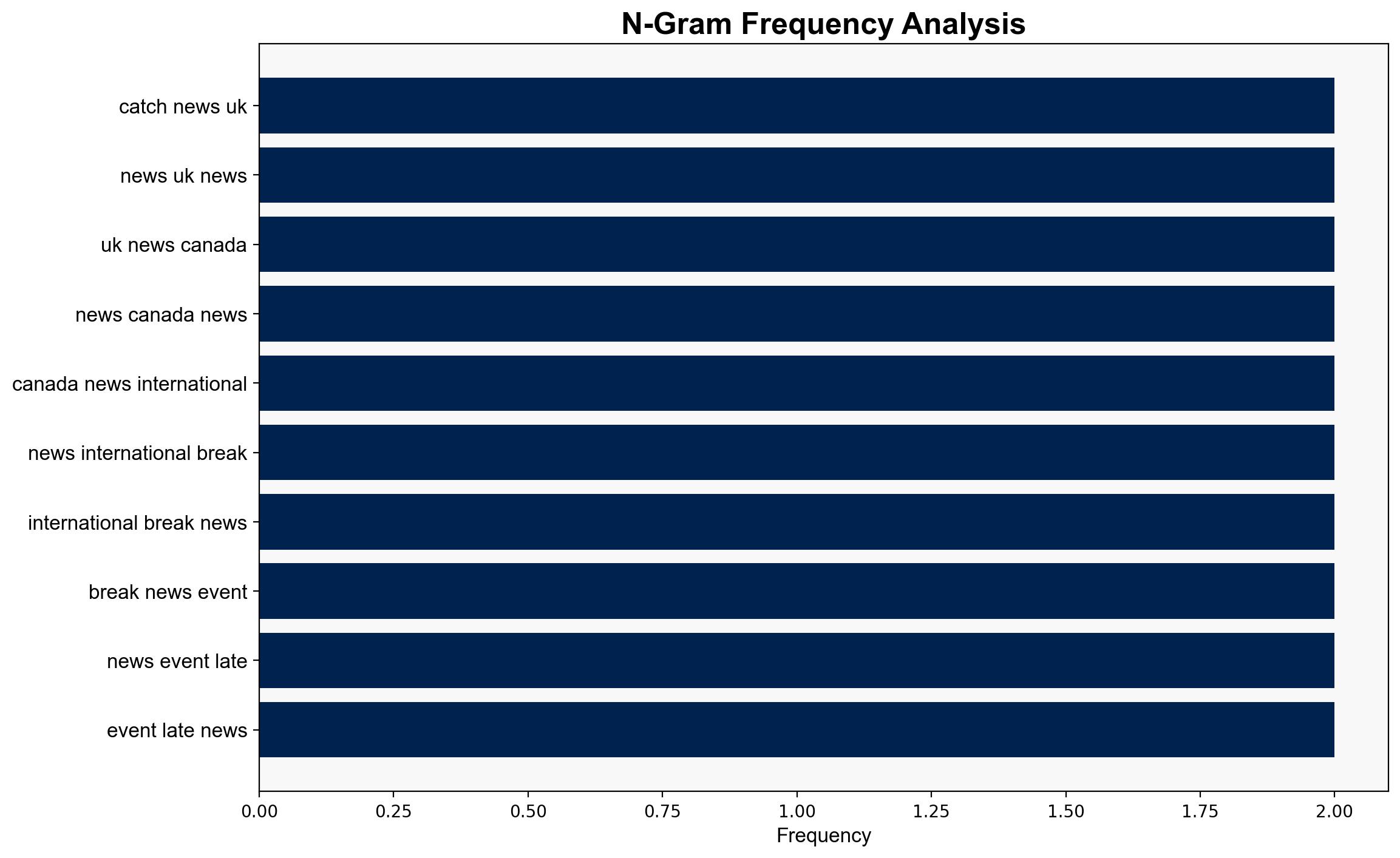Pentagon to immediately start testing US nuclear weapons Trump orders ahead of meeting with Xi – The Times of India
Published on: 2025-10-30
Intelligence Report: Pentagon to immediately start testing US nuclear weapons Trump orders ahead of meeting with Xi – The Times of India
1. BLUF (Bottom Line Up Front)
The decision to resume nuclear testing by the United States, as ordered by Donald Trump, appears to be a strategic maneuver to enhance the U.S. bargaining position with China and Russia. The most supported hypothesis is that this action is intended to exert pressure on China ahead of high-stakes negotiations. Confidence in this hypothesis is moderate due to the lack of explicit confirmation from involved parties. Recommended action includes diplomatic engagement to mitigate escalation risks and reassessment of arms control strategies.
2. Competing Hypotheses
Hypothesis 1: The nuclear testing order is a strategic move to strengthen the U.S. negotiating position with China and Russia by demonstrating military readiness and resolve.
Hypothesis 2: The order is primarily a domestic political maneuver aimed at reinforcing Trump’s image as a strong leader on national security, potentially leveraging this stance for political gain.
Using ACH 2.0, Hypothesis 1 is better supported by the timing of the order, coinciding with the meeting with Xi Jinping, and the historical context of U.S. nuclear policy shifts in response to perceived threats from China and Russia. Hypothesis 2 lacks direct evidence but cannot be entirely dismissed due to Trump’s previous domestic political strategies.
3. Key Assumptions and Red Flags
Assumptions include the belief that nuclear testing will significantly impact China’s strategic calculations and that Russia and China will interpret this as a credible threat. A red flag is the absence of official statements from the Pentagon or Department of Energy confirming the operational details, which could indicate internal dissent or logistical challenges.
4. Implications and Strategic Risks
Resuming nuclear tests could lead to a breakdown of existing arms control agreements, prompting an arms race and increasing global tensions. Economically, it may strain U.S. relations with allies advocating for nuclear non-proliferation. Geopolitically, it risks escalating conflicts in regions where U.S., Russian, and Chinese interests intersect. Psychologically, it may increase public fear and anxiety about nuclear conflict.
5. Recommendations and Outlook
- Engage in diplomatic talks with China and Russia to clarify intentions and seek mutual understanding to prevent escalation.
- Reassess and potentially update arms control agreements to reflect current geopolitical realities.
- Scenario Projections:
- Best Case: Successful negotiations lead to renewed arms control agreements and reduced tensions.
- Worst Case: An arms race ensues, destabilizing global security and increasing the risk of nuclear conflict.
- Most Likely: Heightened tensions with periodic diplomatic engagements to manage risks.
6. Key Individuals and Entities
Donald Trump, Xi Jinping, Vladimir Putin
7. Thematic Tags
national security threats, arms control, geopolitical strategy, nuclear policy




